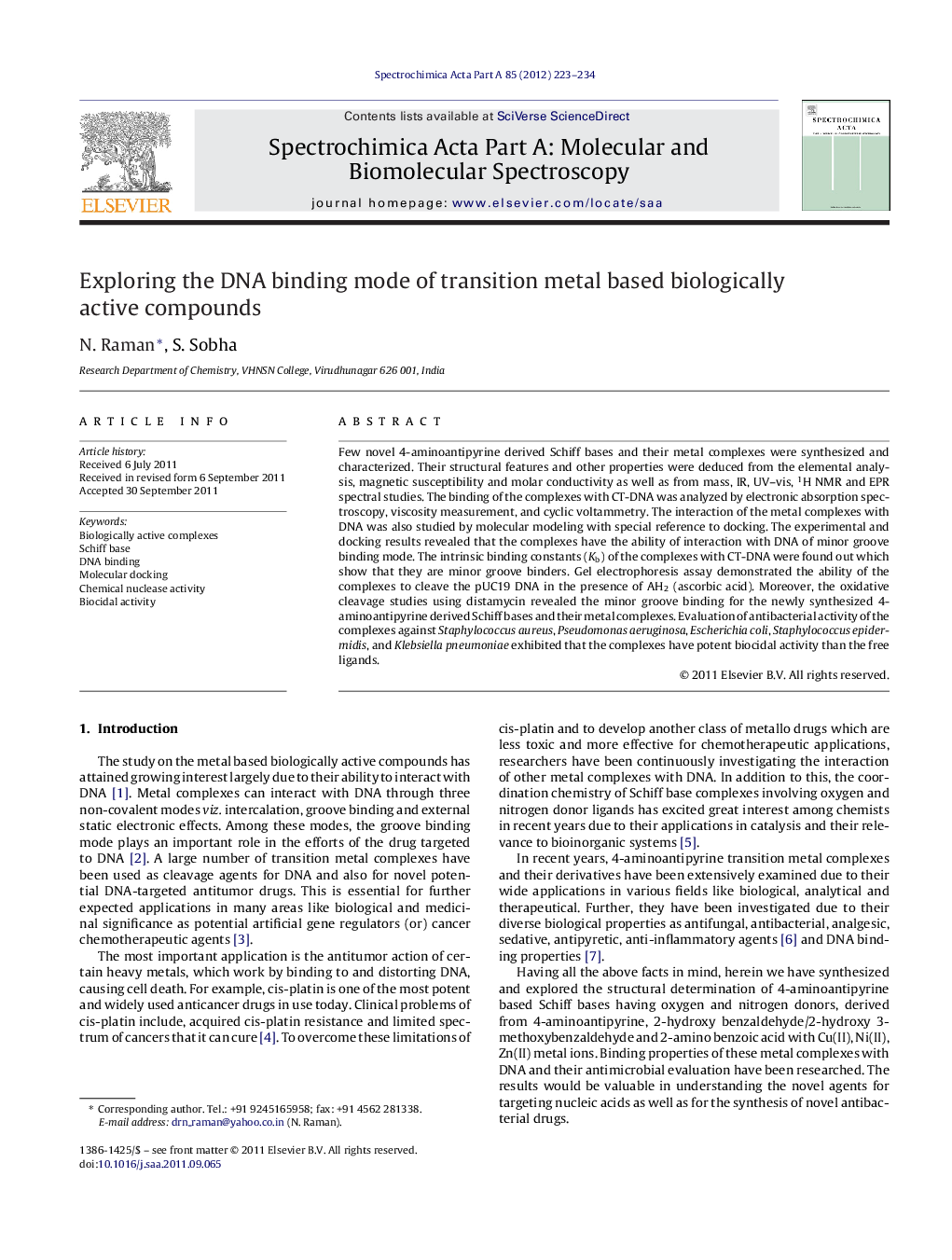| Article ID | Journal | Published Year | Pages | File Type |
|---|---|---|---|---|
| 1236089 | Spectrochimica Acta Part A: Molecular and Biomolecular Spectroscopy | 2012 | 12 Pages |
Few novel 4-aminoantipyrine derived Schiff bases and their metal complexes were synthesized and characterized. Their structural features and other properties were deduced from the elemental analysis, magnetic susceptibility and molar conductivity as well as from mass, IR, UV–vis, 1H NMR and EPR spectral studies. The binding of the complexes with CT-DNA was analyzed by electronic absorption spectroscopy, viscosity measurement, and cyclic voltammetry. The interaction of the metal complexes with DNA was also studied by molecular modeling with special reference to docking. The experimental and docking results revealed that the complexes have the ability of interaction with DNA of minor groove binding mode. The intrinsic binding constants (Kb) of the complexes with CT-DNA were found out which show that they are minor groove binders. Gel electrophoresis assay demonstrated the ability of the complexes to cleave the pUC19 DNA in the presence of AH2 (ascorbic acid). Moreover, the oxidative cleavage studies using distamycin revealed the minor groove binding for the newly synthesized 4-aminoantipyrine derived Schiff bases and their metal complexes. Evaluation of antibacterial activity of the complexes against Staphylococcus aureus, Pseudomonas aeruginosa, Escherichia coli, Staphylococcus epidermidis, and Klebsiella pneumoniae exhibited that the complexes have potent biocidal activity than the free ligands.
Graphical abstract. The synthesized complexes are effective minor groove binders. They contribute to the development of novel useful DNA probes and promise in inhibiting pathogen and are currently under development as potential anti-bacterial drugs.Figure optionsDownload full-size imageDownload as PowerPoint slideHighlights► Computer docking technique plays an important role in the drug design discovery. ► The newly synthesized complexes will act as potential therapeutic agents. ► The complexes display good DNA binding and chemical nuclease activity. ► The scope of this work is to develop the novel antitumor drugs targeted to DNA. ► 4-Aminoantipyrine based metal complexes are found to be good antibacterial agents.
